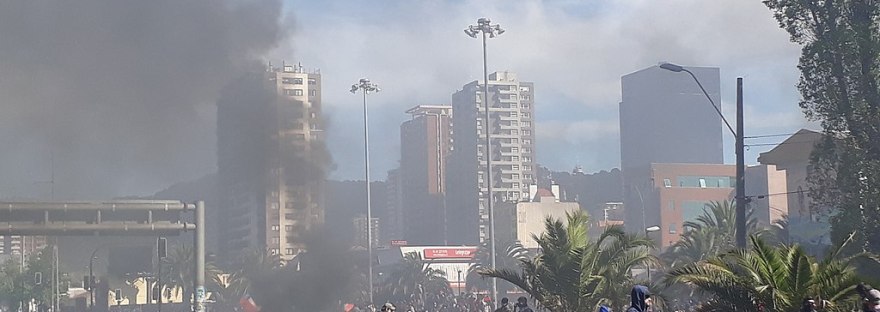
Post submission by Dr. Joe Hardwick and Oscar Cárdenas (PhD Candidate)
Recently, popular Chilean magazine The Clinic conducted an interview with acclaimed filmmaker and PhD candidate at the University of Queensland, Oscar Cárdenas (also known as Oscar Cárdenas Navarro). The interview, which is available on The Clinic‘s website here, focused on Cárdenas’ ability to capture the discontent of Chileans which until recently, had quietly simmered under the surface of normalcy. However, recent events in Chile have brought that simmer to a raging boil, making international headlines.
Chile has experienced ongoing protests and a civil uprising which started on 18 October 2019. These are the largest protests Chile has experienced since the end of the Pinochet’s dictatorship. They began in response to a fare increase on the Santiago Metro’s subway line, emblematic of a much larger issue of disparity in living conditions in the country, with protestors citing factors such as the rising cost of living, income inequality, political corruption, and mass privatisation of services. The crisis has been heralded as yet another “brutal legacy” of the Chilean dictator Gen. Augusto Pinochet neo-liberalism who ruled from 1979 – 1990. Continue reading “Life imitating art imitating life: The raging discontent of Chile”


![Revisiting Oscar Cárdenas’ 2006 film Rabia [Anger]](https://multipleculturalcontexts.files.wordpress.com/2019/08/rabia_still_01.jpg?w=880&h=312&crop=1)
